Opening Remarks
Editor’s Note: The following remarks were delivered by Maddy Butcher, executive director, Saturday morning, October 30, at the opening of the 4th Best Horse Practices Summit at Spy Coast Farm in Lexington, Kentucky.
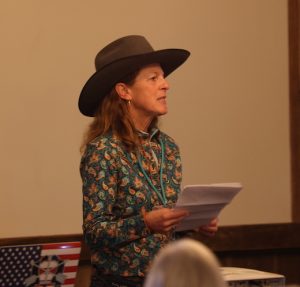
Maddy Butcher, BHPS director PC Steve McBurnett
Hello and welcome to the fourth Best Horse Practices Summit. Before we get started, I want to thank our sponsors, volunteers, board of directors and steering committee members. They have all dedicated impressive resources, time, and effort to making this Summit a reality. And, of course, I want to thank you, attendees, for making the trip, getting help with your animals back home, spending the dough, and investing the time. Traveling and taking time off are always more complicated for us horse owners, right? So we are very appreciative that you lined up everything to get away and join us. You have dedicated effort and energy to continuing education. Kudos and again, welcome!
Together we are from 38 states as well as Canada. We have a collective effervescence that is palpable. The Summit is alive and shimmering! Some of you might already know that I tend to get a bit emotional here, after hundreds of hours of preparation and, especially this year, isolation. Just so you know: the smart money is on me crying before Sunday evening. Or getting someone else to read my remarks because I simply can’t. Or both.
Anyway — I would like to share some opening remarks to grease the skids, as it were. To lay the groundwork for optimal outcomes and suggest a certain frame of mind as you take in our presentations.
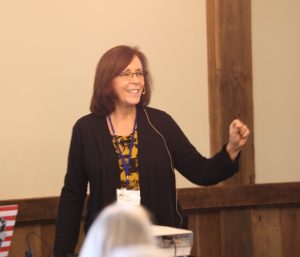
Dr. Sheryl King delivered the keynote address PC Steve McBurnett
For starters, there will be LOTS of information shared over the next two days. If you’re a challenged learner like me, it can be overwhelming. And I know that the whole thing may be a tad stressful and you might get frantic about the possibility that you won’t retain it all.
Here are points to counter those concerns:
We at the Summit know that creating a safe and comfortable environment is part of what facilitates good learning. So, we have worked to provide that. We hope you’ll see that you are in good company, with fellow students who, like you, are life-long learners. You won’t go hungry or thirsty. Restrooms are nearby. The Spy Coast Farm setting, we hope, is pleasing. If you have any concerns, let us know. The Summit staff is here to help.
Also, if you forgot a notebook, there are pages in the back of this program for note taking.
And, in early 2022, all the presentations will be available to stream. For free. Part of your registration fee helps support the A/V production of all of our great presentations. For a full year, you will be able to access these talks at no additional cost. We hope this will allow you to truly relax and take in the experience.
Moving on, I should give you a heads up that at some points during this weekend, what you hear might not be what you want to hear. Of course, most of us like to hear what we already believe in. We love to be affirmed, right? But that’s not necessarily how we make progress. And, I should add a parallel thread – that it’s after failings or otherwise being wrong that we often pick up and make strides, more so than when we succeed or win.
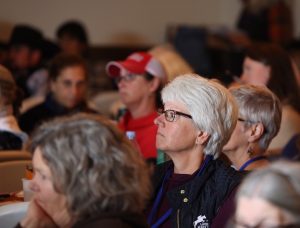
PC Steve McBurnett
So I hope we’re in for a wonderful weekend of failures and mistakes. I’m kidding, but I do hope that the Summit will make you comfortable in body and just slightly uncomfortable in your mind, in a way that stimulates growth.
Because I’m a bit of a nerd, I have been thinking about intelligence, metacognition, and rationality lately. It was spurred by an article written by Joshua Rothman.
- Rationality is the state of being based on or agreeable to reason or logic (it is most definitely NOT rationalization, which, as you know, is a defense mechanism used to justify poor decisions.)
- Intelligence is the ability to acquire and apply knowledge and skills. But it is also, says Rothman, the ability to juggle many scenarios in your head, without letting any one scenario monopolize your attention or bias you against the others.
- Metacognition is having an awareness and understanding of your own thought processes.
Let’s just get this out of the way from the get-go: we all have oodles of rationality, intelligence, and metacognition. Hooray for us!
Rationality, metacognition, and intelligence are all important elements of how we process new information (like what’s offered here at the Summit), and how we take it home and apply it to our horse work.
For example, at some point, I acquired information about how best to keep my horse, like keeping her out where she can move and be amongst other horses. Over time, I may make revisions to my plan of keeping her out and amongst friends and those revisions may have something to do with certain reasons on any given day. In an overarching way, I am aware that modifications to my routine may or may not jibe with information I know and continue to acquire. I’m also aware of how my emotions and spontaneous interactions impact daily or seasonal decisions. In a nutshell, that’s intelligence, rationality, and metacognition.
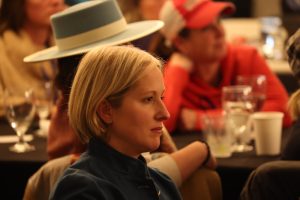
PC Steve McBurnett
Believe it or not, there are certain “best practices” to all this.
It starts with appreciating the Big Picture. In our case, it’s an overarching view of horse keeping and horsemanship. It also might include an understanding of where we fit in our community and how we as horse owners and riders have changed and progressed over the generations.
Best practices is about how we incorporate new information. We know a lot already, so we’re not going to discard wholesale what we already know. It’s with care that we incorporate new information. We need to recognize when new information doesn’t just tweak our plans but possibly uproots our core beliefs. Is this appropriate? Remember that being uncomfortable might be really good in some instances.
We also need to be aware of how learning stuff in a conference room or in an arena translates to at-home implementation. It can be like taking an exit ramp off a highway and hitting a gravel road. The transition itself takes skill.
Best practices means that open-mindedness and experimentation may become new normals for you. I have a feeling that most of you are already open-minded. That’s great! Experimentation then is a fun, regular element of your horse work.
Here are some potential pitfalls in the realm of rationality, intelligence, and metacognition. If you’re like me and feel that Dr. Spock was deeply flawed despite his brilliance, these will be easy to understand:
The more familiar we become with what we’re doing, the less we self-monitor. As you process Summit presentations, for instance, reviewing notes when you get home may not be the best strategy for making sure you understand concepts. Instead, write out or articulate what you think you know, then check your notes or re-watch the presentations. You’ll find these strategies take a lot more effort. It’s not auto-pilot stuff.
So avoid that pitfall by nurturing an awareness of ignorance and embracing what Buddhists call a Beginner’s Mind.
Also, it’s all well and good to digest information in a calm place, at a leisurely pace. But what happens when the pressure is on, when the gate was left open, or, when the competition ramps up?
Maybe, for instance, you’re excited and proud that you and your horse can do a certain movement. But it has to happen at the south end of the arena, in the afternoon, with another horse nearby. First of all, good for you on the movement! But, to borrow from Dr. Suess: Can you do it in a box, with a fox, in a house, with a mouse, in the rain, in the dark, and on a train?
You know your stuff when you can be creative, versatile, and spontaneous with what you know.
What you learn needs to be ready and useful, like a pair of jeans, not like a formal outfit you wear only once.
One more thing – and this mostly has to do with meta cognition, it’s important to recognize when you are right AND when you are wrong. None of us are know everything. While we expand our knowledge, it’s still important to recognize our limitations. Asking for help is a good thing and shouldn’t be subverted because of ego or emotion.
As Rothman writes, thinking straight is just part of the work.
Have fun this weekend!
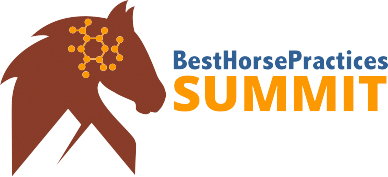
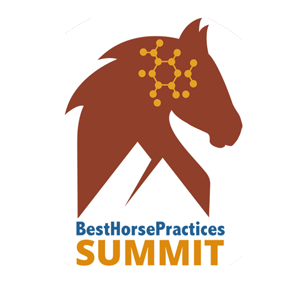
Excellent! Well said, Maddy!